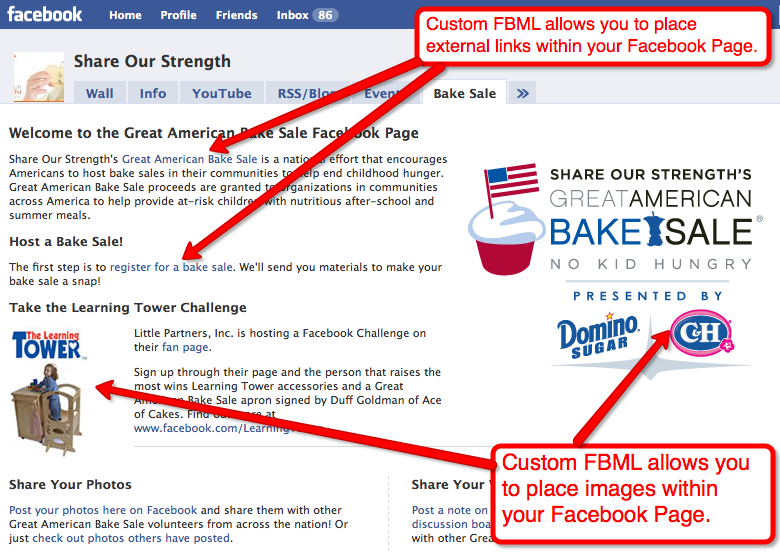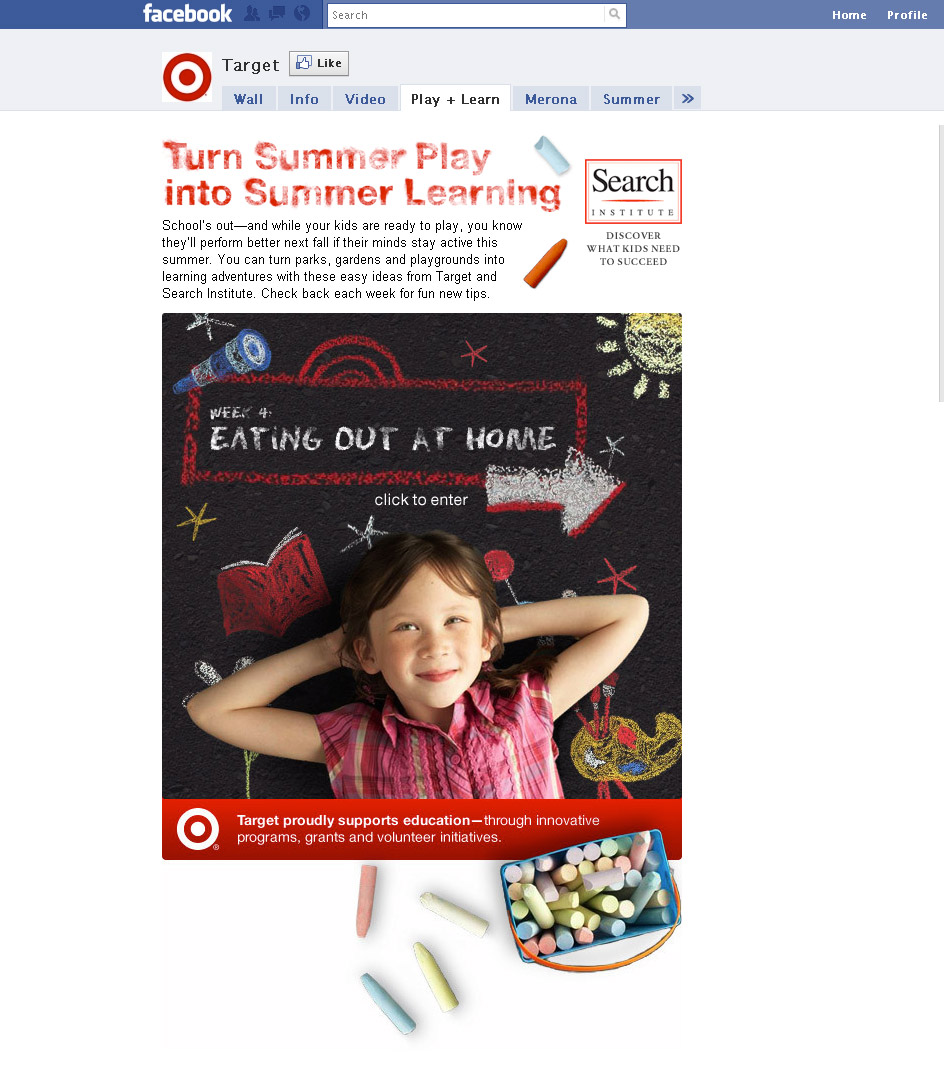Using Facebook Markup Language for Social Media Marketing
June 8th, 2010 by
When I was in elementary school I hated my school uniform. The yellow shirt, brown tweed jacket, blue slacks, and that awful little tie. I remember questioning the school taste level and being matter-of-factly told the uniforms made us focus on school rather than each other. I hate those uniforms because of their lack of personality. I initially had the same feelings towards Facebook. Despite it many features and (annoying) applications, everyone’s accounts looked the same. Sure this was FB’s way to avoid the flashing gif walls and neon colors of Myspace profiles but it took away people’s individuality. Anyone who is into social media marketing can tell you, if you want the community following you gotta stand out. Thankfully Facebook understood this and gave developers Facebook Markup Language.
Facebook Markup Language
Not so much of a language as a bastardization of xhtml, Facebook Markup Language (FMBL) allows users to “build full Facebook Platform applications that deeply integrate into a user’s Facebook experience” (otherwise known as not be boring). FBML is really huge for social media marketing and building a fan community. Having integrated pages with additional options not only keeps visitors on the page longer but it always encourages fans to interact with the page.
Think about the level of engagement you would have if you put an iframe with rotating daily specials onto a Facebook page. With FMBL you can embed your Youtube, Twitter, and Flicker, Adobe Flash objects in the lifeless page.
Even though FBML has existed since late 2007, many companies with a FB presence are still not capitalizing on its power. However, there are companies like Target who are really using FBML to promote their brand and it’s many lines of business. By having their lines of business listed on their fan page, Target can to market new products, promotions, and store locations to loyal (and highly active) customers.
While Facebook Markup Language can’t completely reskin your Facebook page, it does allow a level of customization that the social media platform previous lacked. As the number of FB users continues to grow and social sites become more and more a part of everyday life, having unique content and pages not only allows you to promote products and services but set your business apart from the crowd because no one wants to wear a uniform.
If you’d like to learn more about Facebook Markup Language, please visit Facebook Developer.
Special thanks to johnscotthaydon for the image at the beginning of the post!





